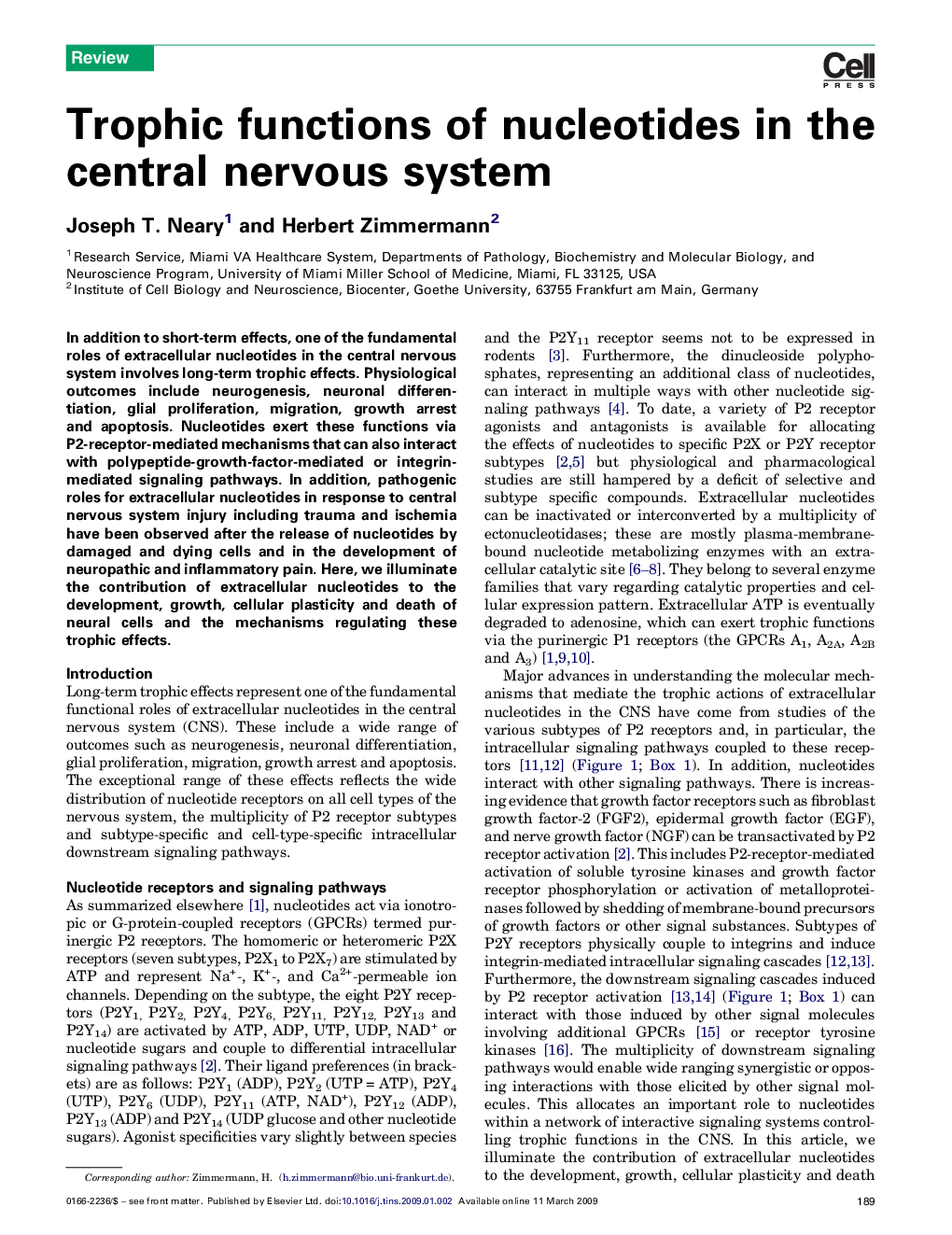| Article ID | Journal | Published Year | Pages | File Type |
|---|---|---|---|---|
| 4354686 | Trends in Neurosciences | 2009 | 10 Pages |
In addition to short-term effects, one of the fundamental roles of extracellular nucleotides in the central nervous system involves long-term trophic effects. Physiological outcomes include neurogenesis, neuronal differentiation, glial proliferation, migration, growth arrest and apoptosis. Nucleotides exert these functions via P2-receptor-mediated mechanisms that can also interact with polypeptide-growth-factor-mediated or integrin-mediated signaling pathways. In addition, pathogenic roles for extracellular nucleotides in response to central nervous system injury including trauma and ischemia have been observed after the release of nucleotides by damaged and dying cells and in the development of neuropathic and inflammatory pain. Here, we illuminate the contribution of extracellular nucleotides to the development, growth, cellular plasticity and death of neural cells and the mechanisms regulating these trophic effects.
